Founded in 1998, Quake was a pioneer in machine-to-machine (M2M) development. Now the company provides powerful stand-alone and integrated solutions that capture real-time data about every aspect of an operation, via satellite, cellular, WIFI, V2x, BLE and RFID.
Don't wanna be here? Send us removal request.
Text
Fleet Manager Duties And How Software Can Help You Be Productive
Fleet managers are faced with making many decisions daily. It's not surprising that many fleet managers experience mental fatigue at some point with the number of micro-decisions they make while at the office.
Fleet managers need to be involved in several different processes including the selection of new vehicles. They are responsible for selecting the type of vehicle, the maintenance requirements, and costs in association with the business strategy. They need to decide on whether it's cost-effective to buy or lease, whether they need one or more vehicles or a mixed fleet, based on the business goals and requirements.

In addition to this, as a fleet manager, you are responsible for effective record keeping regarding registrations, routes, maintenance, fines, and more. This can lead to hours of administrative work which could potentially be reduced with an effective software solution.
Further, you are responsible for the maintenance of the fleet. Preventative maintenance is the way to go, ensuring that vehicles receive regular servicing to keep them on the road for longer, reducing the risk of unnecessary repairs and accidents, which could be dangerous and cost money.
One of the most challenging tasks for fleet managers is the management of drivers, especially when you have a large fleet and you need to keep your finger on the pulse. You need to know your drivers are reliable and trustworthy and aren't taking advantage of company vehicles to take extra-long lunches, travel far distances to visit friends and family or get involved in unreported accidents. Even with ample training, unless you know where drivers are making mistakes, you won't be able to focus on the training that they need to be more productive and achieve the best results.
Introducing a fleet management software system into your process can simplify your duties, helping you be more effective and productive with the information you need on driver behavior and vehicles at your fingertips.
One of the main benefits of using a fleet management system is that it helps you monitor fuel efficiency. Fuel is an expensive cost if you have a large fleet and saving on fuel can be a welcome benefit to your annual budget. With the right software, you can track idle times and fuel consumption, focusing on driver behavior and vehicle performance to ensure that your vehicles remain efficient when it comes to their fuel usage.
Preventative maintenance is key to an effective and reliable fleet. Regular maintenance can reduce unexpected malfunctions, which often are more costly to repair. Reduce expenses by ensuring that you know which vehicles need servicing and having them out of action, ensuring that you can continue to dispatch vehicles effectively to maintain good customer service levels.
Some of the systems available provide telematics built into the vehicles. Telematics offers valuable and detailed information on various parts that can break in the vehicle. This helps you identify when the vehicle isn't performing at its best. You can often secure diagnostic information and identify when to plan urgent maintenance to reduce the risk of breakdowns.
The software available for fleet managers these days helps you learn a lot about your drivers’ behaviors, both good and bad. You can work with drivers on correcting poor driving techniques, such as pulling away from traffic lights and stop signs too fast, speeding, and hard braking. This helps you keep your drivers safe and reduce the risk of accidents, keeping others on the road safe at the same time.
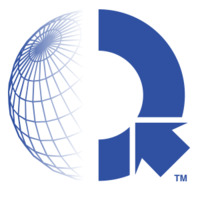
About Us: Quake Global is a leading provider of synchronized relevant data on demand. This company has a proven track record as the pioneer of machine development. They have been supplying powerful stand-alone and integrated solutions to clients in a host of industries since 1998. Quake Global caters to the transport, logistics, industrial, and health care industries on a global scale offering real-time data via cell, Wi-Fi, RFID, and satellite. Their cloud-based system provides actionable data, network flexibility, and adaptable products that clients can count on. To find out more, visit https://www.quakeglobal.com/.
0 notes
Text
Senior Wander Management System Benefits
Wandering prevention systems have been used in senior living communities and hospitals for more than twenty years. They are often adopted in facilities that accommodate dementia and Alzheimer’s patients. These systems help reduce the risk of patients leaving the facility unchaperoned, getting lost, and being exposed to dangerous situations.

As a facility manager, the last thing you want is for one of your patients to go wandering off. This is something that almost always makes the news when it happens, giving the facility involved a really bad name, especially when the resident is injured or dies due to the circumstances. Wandering accounts for approximately ten percent of lawsuits against senior care facilities.
Those that die after leaving the facility often succumb to heat or cold exposure, drowning, or traffic-related injuries. The good news is that unwelcome events like this can be avoided and are preventable with the right software system in place. Approximately ten percent of senior residents have the prerequisite behavioral condition to wander off. This statistic is often higher in nursing homes.
You can invest in two types of systems to advise you when a patient or resident is leaving without permission. The first is a perimeter alarm. This alarm is triggered by a door contact switch, alerting staff that an unauthorized person is opening the door. This ensures the doors are not usable for vulnerable patients and residents, with staff having access codes to ensure the alarm isn't triggered unnecessarily.
The second and more common wander management systems are those that use RFID (Radio Frequency Identification). These involve a controller with antennae that are linked at a door. Residents are equipped with ankle or wrist bracelets that trigger a notification alarm to staff when the resident passes through a door that they are not permitted to pass through without supervision. This only makes passing through the door difficult for those wearing the bracelet, enabling visitors, other patients, residents, and staff to pass with ease.
These are valuable tools for any healthcare facility involving patients that are high-risk wanderers. These systems increase safety. Staff is trained on the procedures to follow once an alarm is sounded and what they must do to ensure the safety of their patients and residents in the event of wandering.
Senior living facilities exist to provide care and a safe living environment for their residents, whether they have mobility or mental issues. One of the biggest obstacles facing managers of these facilities is wandering, a very common behavior with Alzheimer’s and dementia patients. The patients are not sure where they are, wandering off and finding themselves disorientated, lost, and even injured.
Wander management technology allows facilities to provide an additional level of security and safety for their residents. One of the top benefits you will find when incorporating a system like this is that it helps to put residents and their loved ones at ease. This in turn can increase the chances of high marks and success for the facility in the future.
These systems help to improve staff response times, alerting them to a problem in real-time to reduce the risk of accident or injury, helping them complete their duties more effectively.
Ensure you do your research before you make any final decisions on the right wander management system for your facility. Research the supplier and the systems they have in place. Identify if they provide customization service, tailoring the software based on your facility needs. Always make use of reviews, you can find them on independent review sites and many online forums before comparing the suppliers to find the senior wander management solution that will provide you with all the benefits your residents, staff, and visitors need.

About Us: Quake Global is a leading provider of synchronized relevant data on demand. This company has a proven track record as the pioneer of machine development. They have been supplying powerful stand-alone and integrated solutions to clients in a host of industries since 1998. Quake Global caters to the transport, logistics, industrial, and health care industries on a global scale offering real-time data via cell, Wi-Fi, RFID, and satellite. Their cloud-based system provides actionable data, network flexibility, and adaptable products that clients can count on. To find out more, visit https://www.quakeglobal.com/.
0 notes
Text
Hospital Tracking Systems – Everything You Need To Know
Healthcare executives want to ensure the facility they are responsible for operates reliability and safety, treating patients with confidence. A missing patient on the list is a serious nightmare for any manager. This happens in hospitals around the world more often than you may be aware.

As a healthcare executive, you need to focus on preventative measures, ensuring admitted patients don't leave the facility. The latest technology being embraced by many hospitals can provide a wide range of welcome benefits, including reducing the risk of wandering patients and more.
Patient tracking is a relatively new technology that has been adopted by hospitals. This technology provides control over treatment progress, patient flow, and basic processes, including patient acceptance and discharge. It can assist in the improvement of bed turnover rates, allowing doctors to treat more patients seamlessly. It also streamlines patient visits.
The hospital tracking software can track visits. This is shared throughout all networked health facilities, so when a patient is admitted to another facility their patient information is on hand, speeding up their intake and treatment process. This type of tracking has also proven effective when patients tend to wander away from their room or the hospital. Patient tracking eliminates the risk of missing patients with software notifying security should the person leave the premises.
In addition to this, you can enjoy improved record-keeping with real-time tracking. This provides updates on vitals and lab reports, improving clinical trial efficiency, and helping patients have a more productive stay in the facility.
Further, when you have patient tracking, waiting times for patients are reduced. This helps to improve patent flow. It also notifies caregivers when patients arrive for appointments. It helps to create a system to improve patient safety in the long run.
Using information technology in the hospital environment offers a complete range of welcome benefits including better patient engagement, medication management, and more. Some of the technology used includes wearable items, such as badges or wristbands which monitor the patient’s location using a code that is scanned when a physician accesses the records. It improves care by physicians as they can access important information quickly, saving time, and improving patient care.
The other technology that is imperative to hospital tracking is Cloud computing. The Cloud offers the ability to gain access to the system using any device, both inside and outside the hospital using a unique username and password, boosting patient and hospital security. This provides unified storage, thus reducing costs, boosting performance, and improving patient flow.
A hospital tracking system will include a variety of different components such as sensors used to capture and record relevant data on demand. This helps for tracking vitals, temperature, patient activity, specimen sample locations, important lifesaving equipment locations and so much more.
The software will communicate with devices, storing and processing the data for easy to understand solutions that can keep physicians in the loop, while the GPS modules are used to track patients in real-time.
Ensure when making your selection that you choose a hospital tracking system provider with extensive industry knowledge and experience, combined with a quality solution you can trust. They should be able to work with you to identify your particular needs and then customize their system based on your hospital’s goals and patient requirements to boost patient satisfaction in the long run.
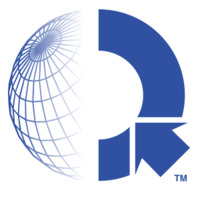
About Us: Quake Global is a leading provider of synchronized relevant data on demand. This company has a proven track record as the pioneer of machine development. They have been supplying powerful stand-alone and integrated solutions to clients in a host of industries since 1998. Quake Global caters to the transport, logistics, industrial, and health care industries on a global scale offering real-time data via cell, Wi-Fi, RFID, and satellite. Their cloud-based system provides actionable data, network flexibility, and adaptable products that clients can count on. To find out more, visit https://www.quakeglobal.com/.
0 notes
Text
What To Consider When Investing In Fleet Management Software For Your Business
Fleet management systems have been designed to improve fleet efficiency by providing fleet managers with the ability to track and manage their vehicles when it comes to maintenance, expenses, and operations.
There are numerous different fleet management systems on the market today, all designed to provide insight into vehicle and equipment usage and performance. These systems provide real-time actionable data to assist in decision making for maintenance, inspections, tracking, and more.

The features provided by the software are very important in your decision-making process. You want to focus on how the system will help you achieve the best results for your fleet in the long run. Software advances help fleet managers improve their processes and manage operations effectively.
Data should be automated and sent to a central location. Most fleet management providers offer Cloud-based systems, enabling clients to access the information that they need using any device linked to the internet by logging in with their unique username and password. You should be able to customize the system based on your business goals and needs to ensure that the information you receive is relevant to your particular fleet.
Always consider your current processes when selecting your fleet management software, ensuring that it will integrate with ease, saving you time, energy, and money in the long run.
Of course, you cannot expect all fleet management systems to be equal, therefore you will need to ensure the system can be customized. Focus on the capabilities of the software. Ask the company for a demonstration, showing you how it can simplify the management of your fleet, no matter the size, moving forward.
There are some very important factors to take into consideration when investing in a fleet management system to optimize your fleet, saving you money, and ensuring you boost customer service and satisfaction levels. One of the first considerations to focus on is how easy the software is to use. Adding new software to your business processes can be daunting, as it can slow down productivity, while team members learn how the new system works. The software should be intuitive, offering a host of welcome features that can be configured to meet your fleet management needs.
In addition to this, the software should be easy to implement into your existing systems and processes. Web-based systems are the easiest to implement, enabling you to start using them immediately without requiring systems downloaded onto your computers. The setup is already in place and tailored to your specific needs with experienced remote support at hand to assist as needed to ensure your system remains up and operational at all times.
Seeing that your fleet is always on the go, your fleet management system should also be completely mobile. Cloud technology will enable you to access data in real-time as needed from any device linked to the internet. This ensures a proactive approach when it comes to your fleet management.
Every fleet is different, each is made up of different vehicles and different numbers of vehicles. Some companies have five vehicles others may have thousands of vehicles. This means any software you consider needs to be scalable to your needs.
Fleet management software these days offers performance metrics you can use in your decision-making processes to make improvements, identify trends, and better your fleet’s efficiency moving forward.
Always ensure information updates are automated to help you keep your finger on the pulse while offering an excellent return on investment.
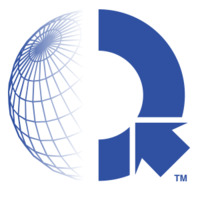
About Us: Quake Global is a leading provider of synchronized relevant data on demand. This company has a proven track record as the pioneer of machine development. They have been supplying powerful stand-alone and integrated solutions to clients in a host of industries since 1998. Quake Global caters to the transport, logistics, industrial, and health care industries on a global scale offering real-time data via cell, Wi-Fi, RFID, and satellite. Their cloud-based system provides actionable data, network flexibility, and adaptable products that clients can count on. To find out more, visit https://www.quakeglobal.com/.
0 notes
Text
Understanding Telematics
Telematics combines computer technology and communications technology. It is most known for its application in commercial fleet vehicles. Telematics technology is similar to that of the black box on a plane, it collects and transmits data on the vehicle’s maintenance needs and driver behavior. This technology combined with effective fleet management software can help companies boost productivity and profitability, saving money in the long run.
Telematics solutions include vehicle tracking devices that send, receive, and store telematic data. A modem is connected to the vehicle’s diagnostics, offering communication through a wireless network. The system collects GPS and other vehicle data that is important for fleet managers to ensure their fleet remains productive and operational.
These devices transmit data using 4G data and cellular networks, along with satellite communications. The server collects the data, providing users access to the information that they need using their private and secure username and password. The data collected includes speed, location, idling, driver behavior, consumption and any vehicle faults. This information enables fleet managers to carry out preventative maintenance, saving money moving forward.
These devices are installed by most commercial vehicle manufacturers. An embedded GPS tracker is installed in the vehicles during the manufacturing process. Vehicles that don't come with a pre-installed device can take advantage of after-market devices which can be installed at any time. The options include battery powered devices which are either powered by the vehicle or have their own internal power source.
Top manufacturers including GM, Ford and Volvo use telematics in their commercial vehicles to improve user experience. They can be used in fleets of all sizes and with the right application, telematics can become an essential part of your vehicle fleet management.
The first reason you want to incorporate telematics into your vehicle fleet is the tracking it provides. Most vehicles are tracked using GPS and satellite, along with cloud computing to store the real time data provided. The receiver downloads the data and then provides it in understandable formats to the fleet manager in real time, offering actionable data that can help promote a productive and profitable fleet.
Trackers can be attached to trailers and other assets, such as construction equipment, to ensure that the assets don't go missing. Locations can be tagged once trailers are unhitched. Should the trailer be moved, the fleet manager will be notified.
Preventative maintenance is essential to a productive and profitable fleet. Unplanned maintenance is expensive and can result in poor customer service due to delivery delays. With telematics, you can identify when vehicles require maintenance or servicing before they break down. Preventative maintenance helps with planning, while saving money in the long run. The onboard diagnostic actionable data provided by these systems includes everything from coolant temperatures to battery voltage and more.
In addition to this, fleet managers can use telematics for driver safety. They can identify the vehicle’s location, speed, seat belt use, harsh braking, and more. This provides information on where improvements can be made and what preventative measures need to be put in place to save money and improve driver safety.
Further, fleet managers can save even more money on insurance premiums when incorporating telematics into their fleet management solution. The system helps managers determine risk factors and act on them quickly, reducing the fleet risk to the insurance company. Many insurance companies will offer discounts for customers who incorporate fleet telematics systems.
Improve productivity, increase driver safety, reduce fuel costs and improve customer satisfaction with fleet telematics solutions, putting actionable real time data in the palm of your hand.

About Us: Quake Global is a leading provider of synchronized relevant data on demand. This company has a proven track record as the pioneer of machine to machine development. They have been supplying powerful stand alone and integrated solutions to clients in a host of industries since 1998. Quake Global caters to the transport, logistics, industrial and health care industries on a global scale offering real time data via cell, Wi-Fi, RFID and satellite. Their cloud-based system provides actionable data, network flexibility and adaptable products that clients can count on. To find out more, visit https://www.quakeglobal.com/.
#global telematics#gps fleet management#gps fleet management solutions#gps tracking for construction equipment#gps tracking system
0 notes
Text
Reasons Why Your Business Needs GPS Vehicle Tracking Devices
There are numerous benefits to incorporating GPS vehicle tracking devices in your fleet to save yourself time, money, and energy in the long run.
The first benefit is that productivity instantly improves. This means fewer calls to drivers, another money saving solution. Having to phone drivers to identify their location is time consuming and can waste valuable resources. It's a waste of your driver’s time, your time, and your clients’ time. With GPS tracking devices you can see where the vehicles are in real time at any time.
Your vehicles are displayed on a map so you can instantly see where they are. It can also answer some basic questions, such as how long until you return to office or have you made the large delivery to customer Y. Customers calling in to identify where your vehicles are are impressed with excellent customer service andreal time answers that they can count on. GPS vehicle tracking systems can improve productivity, profitability and reduce downtime.
With a GPS vehicle tracking system in place you can provide customers with exact rather than approximate times on when they can expect the driver. Accurate information can improve customer satisfaction. This gives you a competitive edge over your competition.

When the weather is bad, you don't want to lose contact with your fleet. Driver safety is at stake. This is why GPS vehicle tracking systems are so beneficial; they provide you with real time and accurate location information, so you can ensure your drivers’ safety on the worst weather days.
In addition to this, GPS vehicle tracking systems can assist with faster vehicle recovery in the event your vehicle is stolen or damaged. This information can be used to direct authorities to the location of your stolen vehicle to being able to quickly pinpoint where a vehicle is in the event of an accident.
Further, you will find when you incorporate a system of this nature to your vehicles you reduce your insurance costs. Most insurance companies will help save you money when you have a system in place that reduces the risk on them. Faster vehicle recovery often provides you with a discount on your insurance premiums.
Many GPS vehicle tracking systems offer unauthorized use and theft notifications, so you can identify when vehicles leave the premises unauthorized or when they are used outside of working hours. This way you quickly identify vehicles moved or stolen without your permission, which can save money in the long run.
GPS vehicle tracking systems offer the ability to reduce paperwork, an excellent productivity benefit which cannot be ignored. You can access real time data with simple report functionality, helping you replace paper based log books and have all the data readily available as needed. Reports on speeding, total travel hours and mileage can all be retrieved by a simple press of a button.
Of course your business vehicle assets will be maximized when you rely on GPS vehicle tracking systems. These help to improve reporting, identify overused and underused vehicles, and help you make improved business decisions as a result. It is important when selecting a GPS vehicle tracking specialist that you do your research and review the companies in detail to find the one you feel confident in working with moving forward.
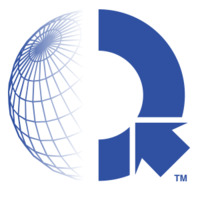
About Us: Quake Global is a leading provider of synchronized relevant data on demand. This company has a proven track record as the pioneer of machine to machine development. They have been supplying powerful stand alone and integrated solutions to clients in a host of industries since 1998. Quake Global caters to the transport, logistics, industrial and health care industries on a global scale offering real time data via cell, Wi-Fi, RFID and satellite. Their cloud-based system provides actionable data, network flexibility and adaptable products that clients can count on. To find out more, visit https://www.quakeglobal.com/.
#gps fleet management solutions#gps tracking for construction equipment#gps fleet management#fleet tracking solution
0 notes
Text
Benefits of Effective Fleet Management Systems
Fleet management systems are imperative for logistics companies these days. GPS tracking enables you to monitor vehicles and drivers. These systems provide valuable data including poor driving habits and fuel consumption, allowing you to manage your fleet with confidence. A reliable fleet management system can boost productivity by fifteen percent, while reducing fuel consumption by up to twenty-five percent.
When you are managing a fleet, it’s important to have access to essential information, such as the performance and location of each vehicle in real time. This can ensure that there is prompt response to any vehicle issues. With an effective system in place you can enjoy real time vehicle locations, fleet performance, engine data, and driver habits, to name a few. You can generate various data comparisons based on the vehicle trips to gain valuable insight into your fleet.
Fleet management systems offer valuable fleet data that your business can benefit from including the location of drivers and vehicles in real time. This is the most basic function of GPS technology, showing you which vehicles are moving, which are idling and more. You can use this information to reduce the risk of drivers running personal errands or visiting friends during working hours.
Another great benefit of fleet management systems is how they can help you utilize your fleet more efficiently. You can provide drivers with optimized driving routes while ensuring that they remain productive during working hours. These features ensure deliveries are consistently made on time, something your customers will appreciate.
In addition to this, you will find that driving habits and safety are greatly improved. Fleet management enables you to monitor your fleet in real time, reducing the risk of unnecessary idling times and speeding. When there is tracking in place, the risk of accidents is reduced.
Further, you can improve customer response times with an effective fleet management system in place. Having the ability to locate vehicles in real time can be beneficial to improving customer response times by sending the vehicle closest to the client with an auto dispatch function to save time, energy and money in the long run.
On average, around six billion gallons of fuel is wasted each year by idling vehicles. Fleet managers are constantly looking for ways to reduce fuel consumption and in turn, save money. Poor driving habits, such as speeding and idling will impact fuel consumption. With the information at your fingertips you are able to provide effective driver training, teaching them how to be efficient and productive on the road.
Another reason to incorporate an effective fleet management system is to maintain regular maintenance schedules. The majority of drivers will rely on the system to advise them when a service is needed. Effective and regular maintenance can be preventative, saving even more money on repair costs in the future.
The final major benefit of an excellent fleet management system is theft prevention. Motor vehicle theft costs billions of dollars each year. GPS tracking devices can help you identify where a vehicle is at any time to reduce the risk of theft, lower insurance premiums and help save your business money in the long run.
Ensure you do your research and review the various fleet management systems in order to find the one system that will benefit your business and help you save money now and in the future.

About Us: Quake Global is a leading provider of synchronized relevant data on demand. This company has a proven track record as the pioneer of machine to machine development. They have been supplying powerful stand alone and integrated solutions to clients in a host of industries since 1998. Quake Global caters to the transport, logistics, industrial and health care industries on a global scale offering real time data via cell, Wi-Fi, RFID and satellite. Their cloud-based system provides actionable data, network flexibility and adaptable products that clients can count on. To find out more, visit https://www.quakeglobal.com/
0 notes
Text
Telematics for Construction – The Benefits
Telematics combines GPS technology, monitoring sensors, and on-board diagnostics that track, log and report data via cellular networks to provide insight into the operation and performance of expensive construction equipment. Data collected is usually accessed through a Cloud based system, providing valuable information on the machine systems. Common data includes the location, idle times, machine alerts and fuel consumption.
Companies that use telematics for construction are enjoying fantastic benefits, including a boost in productivity and lower operational costs. The first benefit of telematics for construction is asset allocation. Telematics shows how much each piece of equipment is being used on active sites, helping to identify if any equipment is better off being reallocated to a location where it will be put to use. Or you may identify that certain equipment is being overused as you don't have enough of this type of equipment onsite. You can quickly identify which assets to allocate to keep the project on schedule.
Telematics can help you identify how your equipment is being used and over time, the data helps you identify any underused assets or which assets you need to invest in. Adjusting your fleet to meet your needs can be cost effective and convenient.
Telematics provides the benefits of easy to manage maintenance and repair schedules. Sensors and onboard diagnostics help to capture and report on the condition of the system including fault codes and fuel consumption. This means that you can set up an effective maintenance program to carry out preventative maintenance to save time and money in the long run. Identifying any problems with equipment can extend the lifespan and save on repair and labor costs moving forward.
Another benefit of telematics is that it assists in improving operator efficiency. These systems help to identify and stop bad habits, such as long idle times, speeding, erratic movements and overloading. Monitoring the data helps to reduce the risk of accidents, ensuring equipment isn't mistreated and that operators work according to the rules and regulations to save money and avoid unnecessary repairs on equipment in the long run.
A great benefit of telematics for construction equipment is that it reduces the risk of theft. You are notified when any equipment is removed from the job site. You can use a fence, which can send an alert when it is used outside working hours. Some systems enable you to shut them down when being used without authority. The benefit is you can track and locate equipment with ease, providing authorities the necessary data to improve recovery.
Of course one of the many reasons why many companies enjoy telematics for construction equipment is how it reduces consumption of fuel. Fuel consumption is one of the main costs for construction companies and also one of the biggest savings opportunities that telematics provides. Monitoring idling times can help you identify machines that are left on and not working, wasting fuel unnecessarily.
Another benefit of telematics for construction equipment is the savings on insurance premiums your company will enjoy. Many insurance providers will reduce the costs of your premiums, offering welcome discounts when you telematics. It is also beneficial when it comes to job estimates as you can use the data to help create accurate quotes, providing you with machine hours, fuel usage and more to ensure you enjoy a profit when working on a construction site.
Do your research, review the different telematic solutions to find the perfect match that will benefit your business moving forward.
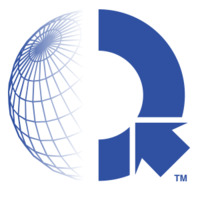
About Us: Quake Global is a leading provider of synchronized relevant data on demand. This company has a proven track record as the pioneer of machine to machine development. They have been supplying powerful stand alone and integrated solutions to clients in a host of industries since 1998. Quake Global caters to the transport, logistics, industrial and health care industries on a global scale offering real time data via cell, Wi-Fi, RFID and satellite. Their cloud-based system provides actionable data, network flexibility and adaptable products that clients can count on. To find out more, visit https://www.quakeglobal.com/
0 notes
Text
Asset Tracking with RFID Benefits
A main focus of business these days is improving the efficiency of operations, staying a step ahead of the competition and focusing on ways to improve transparency when it comes to inventory and assets. More and more companies are relying on RFID (Radio Frequency Identification) to help ensure the smooth running of processes. Suitable for a host of industries, RFID technology is growing in demand and expected to be a $40 billion industry in the next five years.
RFID is a sophisticated technology that provides easy asset control and inventory counting, saving valuable resources. Relying on an electromagnetic field, it automatically tracks and identifies tags on items, reading multiple tags at any given time. The tags contain valuable information that can be viewed on the reader using radio waves. RFID readers are able to detect tags up to more than six thousand feet away. This provides a fast and accurate count within seconds, saving valuable time, energy and money in the long run.
One of the main benefits of asset tracking with RFID is that it increases the visibility of your assets. Stock accuracy is usually around sixty-five percent, this can be increased to ninety-five percent or more when relying on radio frequency identification technology to manage your inventory or assets with confidence.
In addition to being effective in use of assets, you can also use asset tracking with RFID to manage your fleet, forklifts or other valuable assets. The tracking information is provided in real time, giving you the opportunity to keep your finger on the pulse. Real time actionable data helps you manage your assets with ease, locating everything with tags in a certain area quickly and effectively. Asset tracking with RFID increases accuracy and improves accountability within the company.
The most common use of RFID is for asset management. Using RFID technology helps companies stay updated on their assets, monitoring servicing cycles and reviewing asset availability. This type of asset tracking puts information in the palm of your hand including what assets you have and how they are being used. This enables you to make decisions regarding moving your assets to another location, selling them or upgrading them.
When using asset tracking with RFID, you eliminate any product delivery delays. It can help to improve production, creating efficient processes. Improved product deliveries increases customer satisfaction and reduces the risk of employees trying to perform this function manually. Everything can be automated with real time visibility.
Asset tracking with RFID reduces loss, theft and risk. If your business involves the use of high value assets, then you need to be able to keep a strict record to identify any missing equipment. RFID technology provides complete transparency, helping you to account for all assets with confidence, saving money and time when it comes to your asset management.
Asset tracking with RFID reduces labor costs and boosts productivity levels. Employees do not need to be in line of sight in order to read the tag. Assets are identified and scanned automatically, saving valuable time and energy when it comes to counting inventory.
When making your RFID selection it's important you do your research to learn as much about each of the systems available to find the one that is going to integrate with your existing systems in order to achieve the best end results.
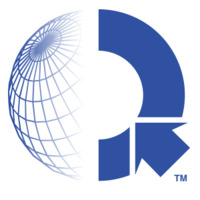
About Us: Quake Global is a leading provider of synchronized relevant data on demand. This company has a proven track record as the pioneer of machine to machine development. They have been supplying powerful stand alone and integrated solutions to clients in a host of industries since 1998. Quake Global caters to the transport, logistics, industrial and health care industries on a global scale offering real time data via cell, Wi-Fi, RFID and satellite. Their cloud-based system provides actionable data, network flexibility and adaptable products that clients can count on. To find out more, visit https://www.quakeglobal.com/.
0 notes
Text
Is RFID Really Useful in the Healthcare Industry?
RFID (Radio Frequency Identification) technology is expanding at a rapid rate throughout the world in a host of industries. There are seven billion RFID tags being used right now in the retail industry. The healthcare industry is experiencing all the benefits of adopting this technology to help save lives.
RFID is the future of the healthcare industry. This technology helps with management operations, personnel and safety processes, and so much more. There are many areas in the healthcare industry where this type of technology can be incorporated to make a difference. RFID can improve patient satisfaction, staff satisfaction, and ensure that all processes run quickly and smoothly.

This technology has proven itself highly effective in patient safety. RFID tags and sensors facilitate the retrieval of a patient’s meal schedules, medications, medicines, history, and more. All of this information is available with one scan of the tag. These tags have proven useful in hospitals also by linking a tag on infants and their mothers, ensuring that they can monitor the baby's safety and reduce the risk of unauthorized removal.
What about contagious diseases, such as the current COVID-19 virus? RFID can reduce the risk of infected patients coming into contact with non-infected patients, reducing the risk of further transmission and helping to control the outbreak.

In addition to this, RFID technology has helped with inventory control from equipment and medicines to devices that are on hand to ensure that they can manage supplies and inventory with confidence. Being able to locate a critical device in real time can save time and reduce the risk of fatality. It also helps staff provide improved patient care and not waste time searching for important devices and equipment, which could be found by simply logging into the system.
Further, RFID in the healthcare industry is often used for quality control. Even with the most advanced inventory control system, it's important that quality control is managed to provide a better healthcare experience for the patients. This includes ensuring accurate medication administration and dosage. This can be done through tags, ensuring that information is correct before administration.
RFID technology has also proven itself effective in organ donor processes. The tags are placed on corpses, allowing for an automated record of organs available, making it accessible to transplant specialists in real time.
Critical systems, such as surgical equipment, instruments and medical devices need to be available at all times to ensure that patients receive the quality care that they deserve. RFID has been used to streamline laboratory processes. It has helped reduce the risks of surgical equipment going missing and it has proven itself in reducing the risk of any instruments being left in a patient by mistake.
RFID is also making a very positive difference when it comes to personnel management in the healthcare industry. Being able to track medical staff to ensure they are available and ensuring that they maintain hygiene standards can be achieved through RFID technology. The technology is also used in operating rooms, enabling staff to quickly identify whether they have the right instruments on hand to complete the surgery.
It's important that when selecting an RFID system for your healthcare establishment that you find the best match based on what you want to achieve. Most hospitals and healthcare facilities want to provide first class patient care with improved patient satisfaction.
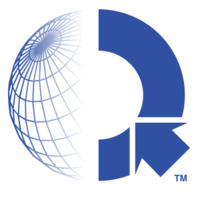
About Us: Quake Global is a leading provider of synchronized relevant data on demand. This company has a proven track record as the pioneer of machine to machine development. They have been supplying powerful stand alone and integrated solutions to clients in a host of industries since 1998. Quake Global caters to the transport, logistics, industrial and health care industries on a global scale offering real time data via cell, Wi-Fi, RFID and satellite. Their cloud-based system provides actionable data, network flexibility and adaptable products that clients can count on. To find out more, visit https://www.quakeglobal.com.
0 notes
Text
Six Top Benefits of Telematics for Your Businesses
Commercial fleets are benefiting from telematic systems. This technology is often used in combination with vehicle safety products. Many vehicle safety products rely on telematics to provide an extensive range of welcome benefits for your business. Understanding telematics can help you see how it can be used effectively with your commercial vehicle management.
The major benefit of telematics for your business is savings on fuel costs, while increasing operational efficiency. Fuel has become expensive and telematic equipment offers a way to understand your vehicle’s consumption. You can identify how to streamline journeys and what can be done to reduce costs, such as driver behavior improvements. This can help you save money and boost productivity.
With telematics for your business, you have the ability to plan effectively. You can ensure your schedules run according to plan and you can coordinate your drivers with ease. The system offers an exact location, accurate speed of vehicles and more. You can create time sheets that ensure your customers remain satisfied, drivers remain happy, and you boost productivity in the long run.
Monitoring driver behavior can be a major benefit, especially with drivers being in the public eye. How they drive reflects on your business. Telematics will enable you to monitor each vehicle on its journey so that you can ensure your drivers are driving responsibility and not taking detours for their own personal gain.
Telematics mustn't be seen as a spying device, but rather an opportunity to help drivers improve their driving by providing feedback on their behavior on the roads and how they can contribute to the company's image.
In addition to this, preventative maintenance is something that every business owner should be focusing on to save themselves money moving forward. Telematics is a great way to ensure you put preventative maintenance plans in place. You can automate services based on odometer readings and the engine run time. The system offers valuable information in real time so you can make informed maintenance decisions to reduce vehicle downtime and ensure that all vehicles run at optimum.
Further, telematics offers improved security and safety for drivers and your vehicles. These are useful systems that can help you track down your vehicles in real time, wherever they are. Global telematics systems even enable you to locate around the world. This helps to reduce the risk of theft, with the opportunity to easily recover any vehicles that are stolen.
The final benefit of telematics for your business is increasing corporate social responsibility by reducing fuel emissions and minimizing your environmental impact. This can help you improve your green credentials with your customers, which can be very beneficial in securing a loyal customer base.
Overall, telematics has proven itself as a useful tool to provide business owners with real time data that can save money, time and valuable resources. Telematics helps you focus on the daily operations of your business, knowing your fleet is managed effectively and you have a finger on the pulse at all times.
When it comes to telematics selection, you want to choose a manufacturer with extensive experience and proven track record. Do your research to learn about the different manufacturers and their host of telematics products and systems. Review them in detail using independent review sites and online forums to create a short list of companies you feel will provide you with the telematics benefits your business deserves.
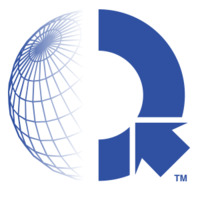
About Us: Quake Global is a leading provider of synchronized relevant data on demand. This company has a proven track record as the pioneer of machine to machine development. They have been supplying powerful stand alone and integrated solutions to clients in a host of industries since 1998. Quake Global caters to the transport, logistics, industrial and health care industries on a global scale offering real time data via cell, Wi-Fi, RFID and satellite. Their cloud-based system provides actionable data, network flexibility and adaptable products that clients can count on. To find out more, visit https://www.quakeglobal.com/.
0 notes
Text
How to Optimize Your Vehicle Fleet
Having a fleet of vehicles to manage can be a demanding, time consuming and overwhelm mingprocess. Fleets are a major investment that requires effort and time in order to ensure it is managed correctly and effectively. Effective fleet management means getting the most out of your fleet and your drivers.
Fleet management is the process of taking steps to coordinate and organize your work vehicles. The focus is to help the business reduce costs, minimize risk and improve driver safety.Effective fleet management ensures regulatory compliance, reduces downtime and increases productivity.
Fleet managers use a host of tools and programs in order to accomplish these tasks. Modern fleet management uses cellular, RFID, Bluetooth and satellite fleet tracking systems. With fluctuating fuel costs, new trucking regulations, and high vehicle maintenance costs, a good fleet tracking system can help to improve productivity and reduce the risk of unnecessary costs.
There are a wide number of great benefits associated with effective fleet management. You can save time and money, keeping your drivers safe, improving your customer satisfaction, and giving your productivity a welcome boost. At the same time, there are a host of challenges that fleet managers face on a regular basis.
One of the first challenges faced by fleet managers is acquiring vehicles. They want to ensure that they find the best deal for the best vehicles suitable for the task want the vehicles to provide an affordable insurance premium, making it a cost effective option that will offer a great return on investment in the long run. Fleet managers need to evaluate any changes regarding vehicle legislations and implement these changes quickly. Allocating budgets often includes resale values and life span of the vehicle.
Another challenge faced by fleet managers today is meeting compliance requirements, ensuring systems are in place to generate information for vehicle auditing and speeding up insurance claims. Vehicle legislation is constantly changing and as a result fleet managers need to stay updated with the latest information.
In addition to this, as a fleet manager you need to ensure that you control costs effectively. With the fluctuation in fuel prices, cost control needs to be managed regularly. You will need to carry out a cost benefit analysis to ensure that you are working within your budget. You need to find areas where you can cut costs by using fleet telematics or fuel cards. Having a good fleet tracking system in place can save time, energy and valuable resources when it comes to effective fleet management.
Maintenance needs to be carried out in a timely manner to ensure that all vehicles function smoothly. Neglecting a fleet will result in operational inefficiencies and the inability to meet client demands, which can result in poor customer service levels. Poorly maintained vehicles can also result in insurance costs increasing. Drivers should be carrying out routine inspections and mechanical checks should be carried out at regular intervals. Any defects should be reported immediately to preserve the lifespan of the vehicle.
Drivers need to be evaluated on an ongoing basis. Fleet tracking systems can provide you with real time data to ensure that your drivers are taking steps to help reduce fuel consumption, You can also monitor whether they drive safely, reducing the risk of accidents. Drivers should also be trained on reporting and identifying vehicle problems.
Finally, fleet tracking systems can help the team manage tasks effectively. These systems can track driver behavior, they can optimize routes and coordinate vehicles. These systems can help drivers and in house teams communicate and coordinate effectively.
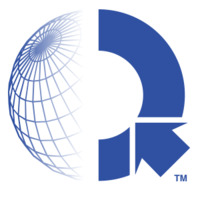
About Us: Quake Global is a leading provider of synchronized relevant data on demand. This company has a proven track record as the pioneer of machine to machine development. They have been supplying powerful stand alone and integrated solutions to clients in a host of industries since 1998. Quake Global caters to the transport, logistics, industrial and health care industries on a global scale offering real time data via cell, Wi-Fi, RFID and satellite. Their cloud-based system provides actionable data, network flexibility and adaptable products that clients can count on. To find out more, visit https://www.quakeglobal.com/.
0 notes
Text
M2M Cellular Modem – What You Need to Know
One of the fastest growing and evolving markets today is M2M (Machine to Machine) connectivity. This technology is responsible for IoT (Internet of Things). IoT sensors gather data from a system and send it to another system, which offers actionable data or it can be stored for later reporting. This can be manual or automatic, immediate or delayed, triggered or continual. The focus is to move data from one place to another over great distances.
Moving M2M data can be very easy, simply using wired connections if transferring over shorter distances. The data can also be sent wirelessly over short distances, using Bluetooth and other radio frequency connections. Longer distances can rely on wired and WIFI networks. The easiest and quickest way to access the information from any location is by using cellular networks with anon-voice, data only connection. This can be an affordable option.
Cellular networks can be found throughout the world in populated areas. Cellular signals are used to transmit data, reaching places where voice connections cannot access. When considering cellular connectivity, you need to ensure it is right for your application, it provides access of the cellular network, and whether it can help you decide whether to outsource the function.
The choice of cellular technology you choose is determined by location and the type of data you will require.There is 2G, which is a second generation cellular technology used to transmit compressed digital form, allowing for multiple messages to be transmitted. 3G, on the other hand, is the third generation of cellular technology and can support data speeds of up to 3Mbps. The majority of the world uses 3G, where the US still relies on 2G and 3G technology. LTE, or Long Term Evolution is also known as 4G, the fourth generation of cellular technology. LTE is implemented over different spectra with compatible devices. It offers a high throughput rate and is suitable for video streaming and high volume processes.
When it comes to M2M cellular modems you need to choose a cellular access technology focusing on the range, time and cost. Products accessing the network must have a FCC certification. A pre-certified M2M cellular modem can eliminate the cost of certification, allowing instant activation on a network, saving money and helping you improve your return on investment quickly.
Technology today is quickly evolving and changing, which means that you can be left vulnerable if you don't choose the right M2M cellular modem in the first place. The entire operation of one device or a system can be based on the modem performance. When developing products that incorporate a M2M cellular modem, work with the provider throughout the product development.
A good example of the M2M Cellular Modem is the Qconnect, an intelligent ultra-compact communication device. Qconnect is intelligent and rugged, suitable for a host of applications. This type of M2M cellular modem is effective in tracking global assets. This is a fully programmable modem to solve telematic issues in any environment. This type of M2M cellular modem uses 4G/LTE along with 3G and 2G in a P67 enclosure which is J1455 compliant for the harshest of environments.
Do your research into the various M2M cellular modems to find the one that is going to meet your unique needs with ease and confidence, a communication solution that will add value for your business.
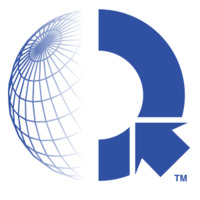
About Us: Quake Global is a leading provider of synchronized relevant data on demand. This company has a proven track record as the pioneer of machine to machine development. They have been supplying powerful stand alone and integrated solutions to clients in a host of industries since 1998. Quake Global caters to the transport, logistics, industrial and health care industries on a global scale offering real time data via cell, Wi-Fi, RFID and satellite. Their cloud-based system provides actionable data, network flexibility and adaptable products that clients can count on. To find out more, visit https://www.quakeglobal.com/.
0 notes
Text
Tips for Finding the Best Emergency Call System for Seniors
Caregivers and family members worry constantly, especially when elderly loved ones live on their own and the risk of falls, stroke and heart attack are high. The risk of falls in seniors over the age of sixty-five is elevated with sixty percent of falls happening in private homes.
Seniors these days want to maintain their independence, many refuse to move to love-term care facilities. Family members worry around the clock if their family members area light, a serious issue that is happening throughout the world as seniors live for longer and the cost of long term care increases. This means that you want to be notified the minute there is an emergency.
There are a number of emergency call systems for seniors on the market.These systems go by various names, such as medical alert devices, senior call buttons, emergency call systems and more. They all work in a similar manner, ensuring the senior’s safety and providing family members with peace of mind.
The majority of emergency call systems for seniors have three components, this includes a call button, a console, and a base station which is connected to a telephone line.There is an emergency response center that monitors the calls, ensuring fast and effective solutions. In an emergency, your loved one pushes the button for help, which results in the console dialing the center and connecting the user with an operator. The type of help needed is determined, ensuring the right team arrives to assist.
The majority of consoles offer a two way speaker, enabling the senior and operator to communicate with each other, even if the senior cannot reach the phone. The operator will also contact the family member or neighbor on the list of emergency contacts. The systems vary based on the different suppliers, their designs, and packages.
One of the things to focus on when choosing an emergency call system for seniors is the contract terms and pricing involved. The access fees vary from one supplier to the next, some offer monthly, semi-annual or annual fee structures. Ensure you make yourself aware of the minimum obligation associated with the service while getting information about activation fees, cancellation fees and more.
It's imperative that you take the time to ensure the emergency call system for seniors is the right fit based on the senior’s unique living arrangements and medical conditions. Do you have a loved one with Alzheimer’s who wanders off now and then or do you have a loved one with knee issues, increasing their risk of falls and slips in the home? These systems have had numerous added features included over the years including medical reminders, daily check-in calls, home security features, fitness trackers and more.
You want to pay very close attention to how long the supplier has been operating and whether they have a solid reputation in the industry. Take your time searching for online reviews and finding out as much about each supplier as possible. Look for a company with a proven track record for quality, affordable pricing, and top notch customer service.
A big deciding factor when choosing an emergency call system for seniors is the range of the system. Will you need more than one base station or is one enough to cover the entire home? What about cost? Can the system be taken with you on vacation? These are important questions to ask before you make any final decisions.
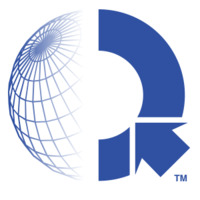
About Us: Quake Global is a leading provider of synchronized relevant data on demand. This company has a proven track record as the pioneer of machine to machine development. They have been supplying powerful stand alone and integrated solutions to clients in a host of industries since 1998. Quake Global caters to the transport, logistics, industrial and health care industries on a global scale offering real time data via cell, Wi-Fi, RFID and satellite. Their cloud-based system provides actionable data, network flexibility and adaptable products that clients can count on. To find out more, visit https://www.quakeglobal.com/.
0 notes
Text
Understanding RFID Asset Tracking and Management
Automating your asset management processes does not have to be complex and expensive. In fact, there are simple cost effective solutions to provide you with accurate inventory information in real time using RFID (Radio Frequency Identification). RFID has gained momentum in the past ten years as a primary means of data management processes.
There is a host of RFID devices to choose from along with related software that has been developed to help with asset tracking and management. RFID tags are used that identify the person or object. Devices are scalable and perform on a greater distance range than barcode technology. They can scan numerous items at once rather than one item at a time, speeding up the tracking and management process with excellent accuracy.

RFID has improved inventory control with excellent distance and reading power. The type of labels selected will work in your environment. Ensure you choose the tags that meet your needs whether it's inside an electronic device, on clothing, inside screws, or for a humid environment.
RFID offers a complete range of welcome benefits when it comes to your asset management. This technology identifies each asset through intelligent labels; the labels are which are read by specialized readers. The asset management solution starts with a unique identification label that cannot be changed or tampered with. The reader then sends a radio frequency and the label information is transmitted back and collected in the cloud with real time generated reports, for added convenience.
RFID asset management systems are easy to implement and can be integrated with ease. They allow reading distances of up to ten meters, making them ideal for any factory or warehouse. This system is ideal when you do not have direct line of sight to items. It allows youto read multiple labels at any given time. The information is updated and accessed in real time and improves productivity of the entire asset tracking and management process.
The main reason to consider RFID for asset tracking is the accurate data gathering. RFID uses an intelligent identification system that provides accurate real time information and control. It provides a centralized database which is accessible from any device linked to the internet using your unique user name and password, ensuring a high level of security.
Another reason to consider using RFID asset tracking and management is that you have instant location of your assets in real time. You can check at any time of day or night for updated and accurate information you can count on. Additionally, you can get a complete overview of the location of your inventory. This system improves efficiency, saving yourself time and money in the long run.
In addition to this, having control and information on your assets is an excellent way to identify what inventories need replenishing, ensuring excellent customer service.It allows for a faster inventory, tracking up to one hundred items in one second. This makes asset management fast, easy and hassle free.
Further, you have access to your inventory from anywhere, as long as you are connected to the internet. Owners, managers and supervisors are able to use their unique login information to access the cloud and enjoy real time actionable data. The good news is that RFID systems can easily integrate with other data platforms and accounting systems to provide accurate real time data to help make the most intelligent and informed decisions moving forward.
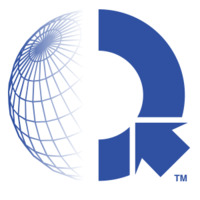
About Us: Quake Global is a leading provider of synchronized relevant data on demand. This company has a proven track record as the pioneer of machine to machine development. They have been supplying powerful stand alone and integrated solutions to clients in a host of industries since 1998. Quake Global caters to the transport, logistics, industrial and health care industries on a global scale offering real time data via cell, Wi-Fi, RFID and satellite. Their cloud-based system provides actionable data, network flexibility and adaptable products that clients can count on. To find out more, visit https://www.quakeglobal.com/.
0 notes
Text
RFID Technology Advancements
RFID (Radio Frequency Identification) is a technology that is used for a variety of applications including supply chain and asset management, logistics, and traceability. This complex technology utilizes radio waves to identify objects and transmit information to users. The system is often hosted in the cloud, offering easy and secure access in real time.
The RFID device offers a unique identification to each object it is connected to. These are scanned by a reader to retrieve information. The reader reads a chip, which is able to carry up to two thousand bytes of data.
RFID tags are different to barcodes. Barcodes can be found on most products that are for sale. They are made of lines a varying thickness. The lines are read by a scanner to identify the object and provide the information required. Barcodes need to be individually scanned by a scanner, which is something you probably experience at your local store. RFID readers, on the other hand, are able to scan multiple items simultaneously within a given area, even if they are not in direct sight.
More and more industries are now relying on RFID technology as an identification system in complex environments, such as remote construction sites, warehouses, logistics and OEM companies, retailers and more. Over the years, RFID has become cutting edge thanks to the latest computer and software technology. These advanced systems are now being used to identify inventory, completed products and raw materials.
RFID is now being used by the military to track incoming goods, while postal services use it to ensure efficient delivery of packages. RFID is even used at security checkpoints in international airports throughout the world. It also offers quick check out processes at larger department stores and libraries.
In addition to this, RFID technology is being used at border crossings, embassies and airports around the world. It is also being used in credit card systems, using the tap and pay technology.
Further, there were more than eight billion RFID tags sold in 2015 with the demand for this technology growing by the day. The industry is expected to reach $13.2 billion in 2020 and $18.6 billion within four years.
RFID technology advancements are found in the faster check outs you experience at large department stores. This is helping these stores speed up checking out processes to improve customer satisfaction and reduce the need to employ more check out staff cashiers.
This technology has also proven to be effective when it comes to material handling, ensuring that product selection for delivery is efficient while reducing the risk of error and boosting productivity. A faster selection process with accuracy and efficiency can help to boost customer service levels, which can help you improve customer loyalty in the long run.
RFID technology can improve security both at borders and airports, but also within the factory environment. In addition to this, this technology has advanced to reduce the risk of running out of stock and improving customer service.
There is a wide selection of RFID technology on the market for companies of all sizes and in just about any industry. One important factor to consider is whether the system is scalable and customizable to meet your business goals moving forward. Pay close attention to the after sales support offered, along with the other solutions that they provide.
Is the company experienced? Do they have an outstanding reputation? Have you compared a number of companies to find the one to provide you with the best RFID technology in the long run?
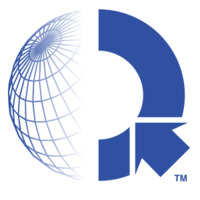
About Us: Quake Global is a leading provider of synchronized relevant data on demand. This company has a proven track record as the pioneer of machine to machine development. They have been supplying powerful stand alone and integrated solutions to clients in a host of industries since 1998. Quake Global caters to the transport, logistics, industrial and health care industries on a global scale offering real time data via cell, Wi-Fi, RFID and satellite. Their cloud-based system provides actionable data, network flexibility and adaptable products that clients can count on. To find out more, visit https://www.quakeglobal.com/.
#rfid asset tracking management#rfid asset tracking solutions#rfid automation#rfid equipment tracker#rfid equipment tracking system#rfid inventory solution#rfid it asset tracking#rfid location#rfid products
0 notes
Text
Benefits of Asset Tracking with RFID
RFID (Radio Frequency Identification) tagging has grown in demand in a number of industries around the world including construction, library, manufacturing, vehicles, and more. It offers real-time tracking, data capturing, logistics management, inventory distribution and management, and so much more.
The first benefit to asset tracking with RFID is the sales growth you can experience. Retail stores that have embraced this technology are experiencing between eight and ten percent growth. They have information at their fingertips in real time. RFID technology provides inventory analysis in real time, reducing the risk of selling out of a product and not being able to efficiently accommodate orders coming in.
In addition to this, companies that have embraced asset tracking with RFID have precise and quick identification of their inventory in a reliable way. A manual process takes at least five percent longer than an RFID system when it comes to speed of data capturing. If you want to know if you have a certain number of specific inventory items available, you need real-time data to ensure you provide your clients with accurate and updated information, boosting customer service levels with confidence.
RFID tags contain a memory chip that allows the storage of information about the item’s location, serial number, manufacturer, use history, maintenance schedule, and photographs. Asset tracking using RFID creates a complete database of information readily available for your convenience. The information is hosted in the cloud, allowing you to access the information from any device with access to the internet, using your unique username and password.
A major benefit of using asset tracking with RFID is that you have an accurate database that is life and constantly updated. This means you can access accurate information that you can count on at any time. This reduces doubt, eliminates the risk of theft and loss and helps you save money and boost service levels moving forward.
Further, companies that have embraced asset tracking with RFID are offering faster distribution on their products due to the real time data available and the reduced risk of running out of stock. Efficiency and accuracy at selection points can be improved, reducing the risk of human errors and ensuring that you keep your customers happy with your services to improve loyalty and ongoing support.
Asset tracking using RFID can help you reduce your labor and logistics management costs, saving you money in the long run. The task of managing assets is time-consuming and labor-intensive; it can tie up some of your most valuable resources. RFID reduces the need for physical asset tracking, improving logistics control with confidence.
The read accuracy when using asset tracking with RFID is over ninety-nine percent. The processing speed equates to less than a percent or two of a manual process. This reduces the risk of human error while improving productivity, efficiency, and accuracy. This can also help to reduce the risk of loss and theft inside the company, which can save you even more money.
The final great benefit of asset tracking with RFID is that you can track multiple items at once, rather than physically scanning each individual item with a scanner. RFID relies on radio signals identifying items within a certain area without needing a line of sight. This enables the RFID to read multiple items very quickly, offering a faster read time than a manual scanning process.

About Us: Quake Global is a leading provider of synchronized relevant data on demand. This company has a proven track record as the pioneer of the machine to machine development. They have been supplying powerful stand-alone and integrated solutions to clients in a host of industries since 1998. Quake Global caters to the transport, logistics, industrial, and health care industries on a global scale offering real-time data via cell, Wi-Fi, RFID, and satellite. Their cloud-based system provides actionable data, network flexibility, and adaptable products that clients can count on. To find out more, visit https://www.quakeglobal.com/.
#asset tracking with rfid#rfid asset tracking management#rfid asset tracking solutions#rfid automation
0 notes